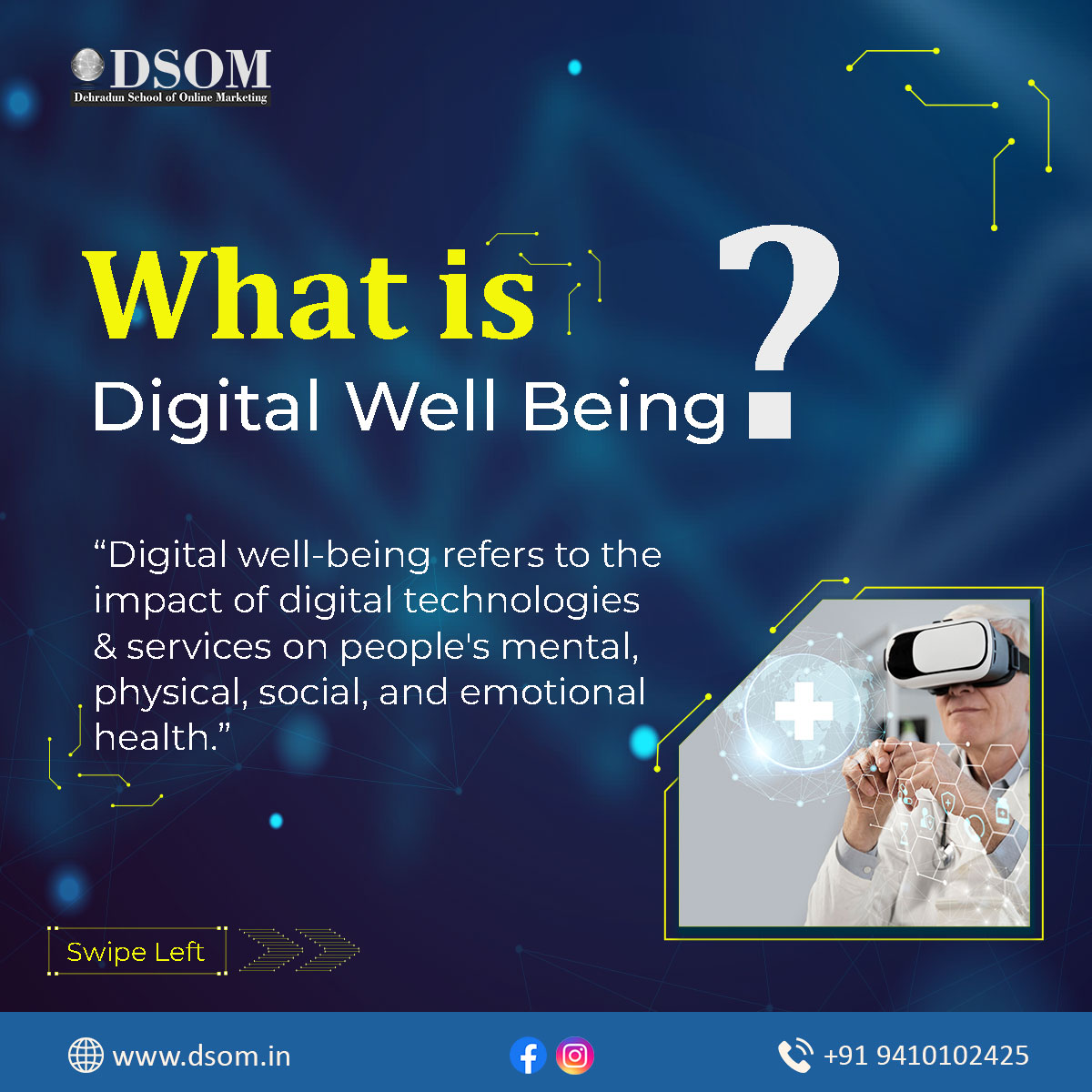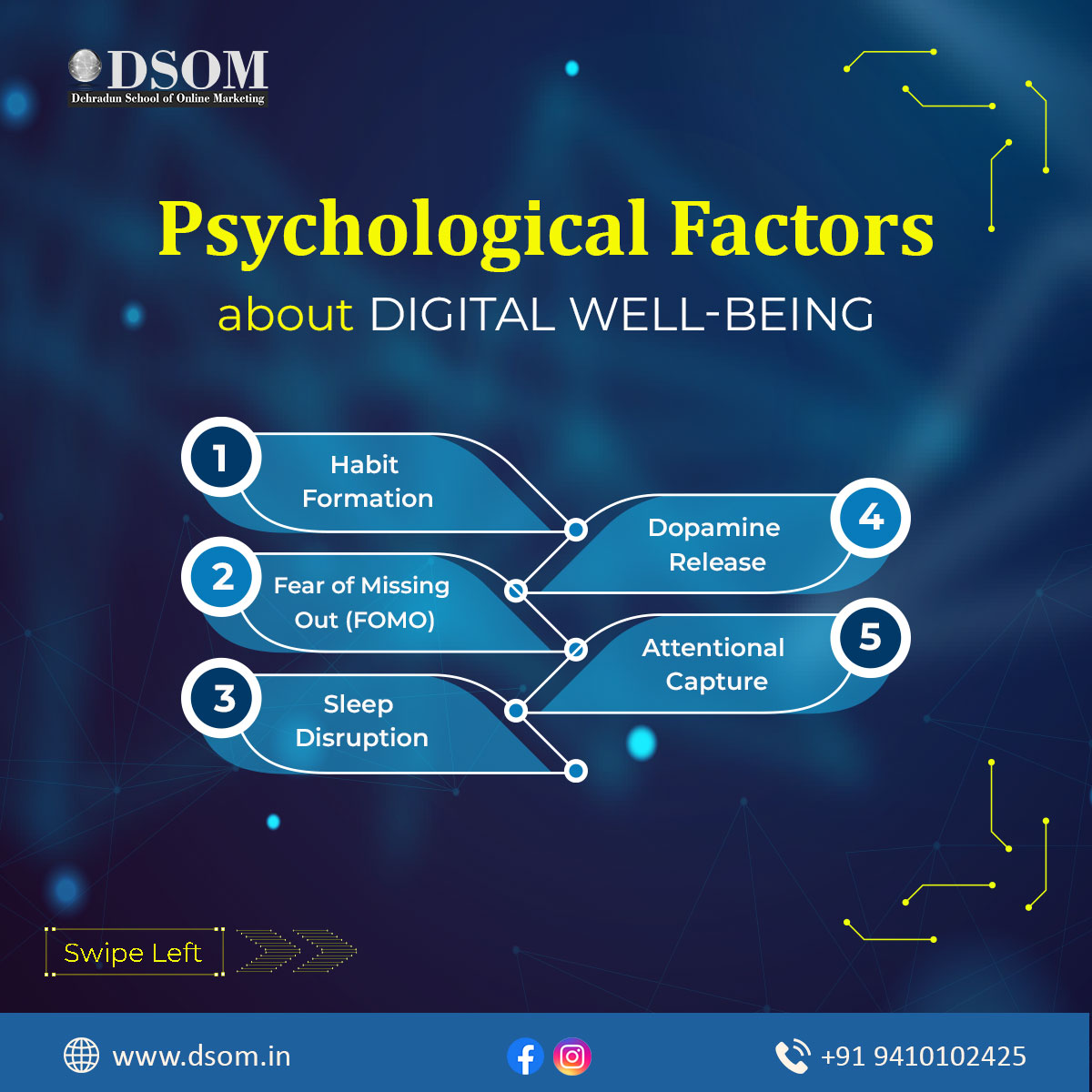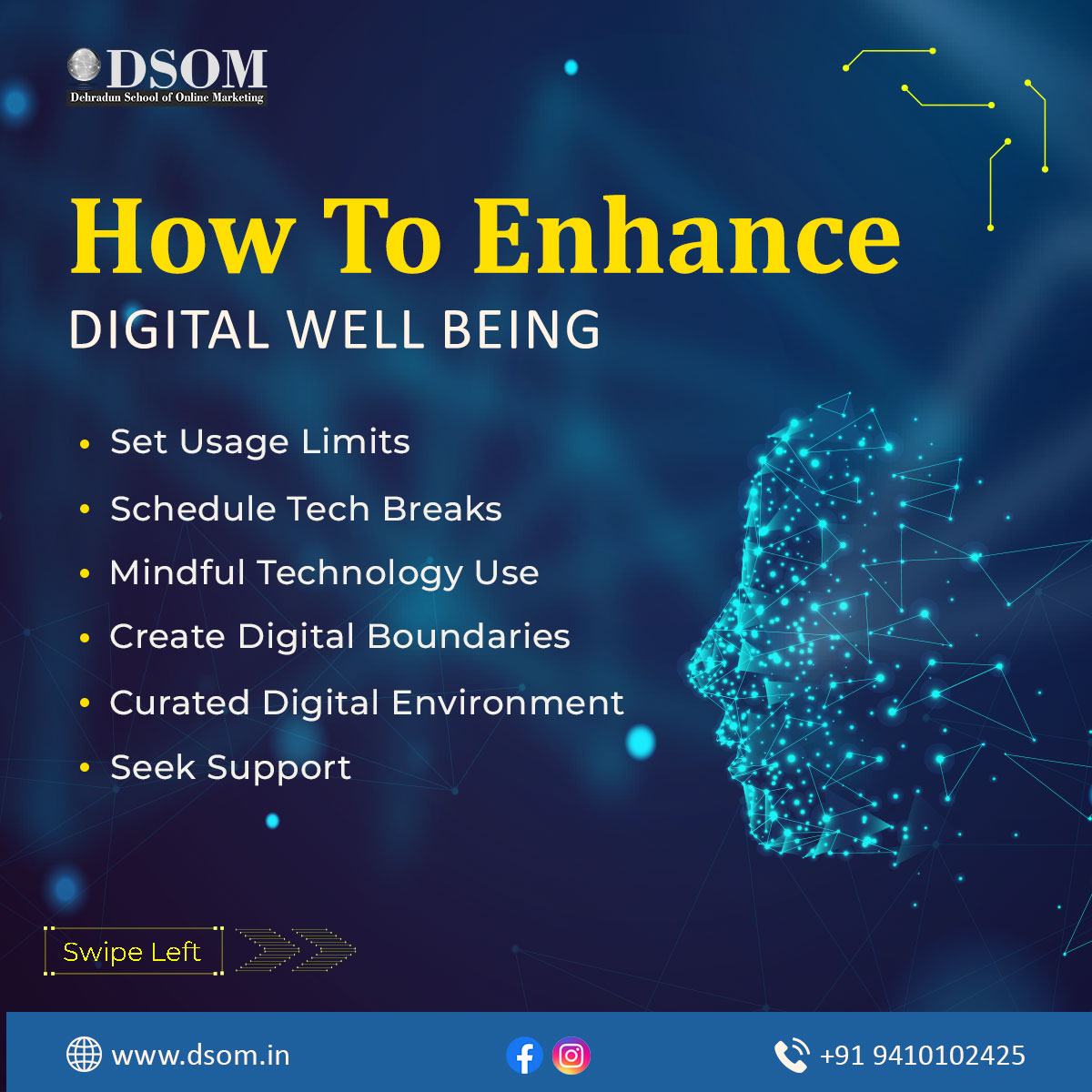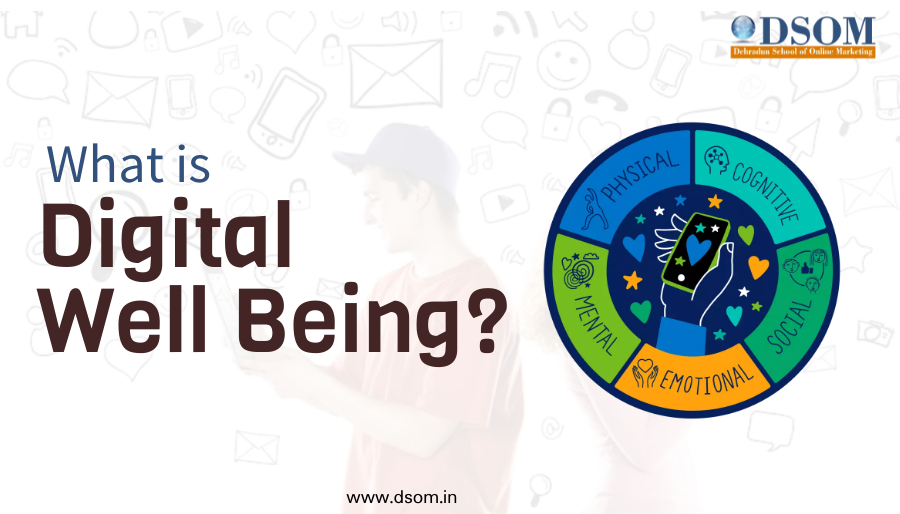In an age where our lives are intricately interwoven with technology, achieving and maintaining digital well-being has become an essential aspect of our overall health. From smartphones to laptops, social media to streaming services, our reliance on digital devices has significantly impacted our daily lives
Yet, the psychological implications and challenges related to digital well-being often go overlooked. Understanding the psychology behind digital well-being and learning how to overcome its challenges are crucial for fostering a healthier relationship with technology.
What is Digital Well-Being ?
Digital Well-being refers to the state of your overall health and happiness in relation to your digital or online life. It involves managing your use of technology in a way that promotes a healthy balance between the time you spend online and offline, ensuring that technology enhances your life rather than causing stress or negative effects on your mental or physical health. It involves being mindful of screen time, setting boundaries, and using technology in a way that supports your well-being.

The Psychology Behind Digital Well-being
1. Instant Gratification and Dopamine Response:
Our interaction with technology often triggers the brain’s reward system. Likes on social media, notifications, and quick access to information create a cycle of instant gratification, releasing dopamine—the feel-good neurotransmitter. This cycle can lead to addictive behaviors and compulsive device usage.
2. Fear of Missing Out (FOMO):
The fear of missing out drives constant engagement with digital platforms. Social media feeds and the constant stream of updates create a sense of urgency, compelling individuals to stay connected, often at the expense of their well-being.
3. Comparison and Self-Esteem:
The curated nature of online content can contribute to feelings of inadequacy and low self-esteem. Constant exposure to idealized images and lifestyles can foster unhealthy comparisons, affecting mental health.
4. Information Overload and Cognitive Overwhelm:
The flood of information from various sources can overwhelm cognitive abilities, leading to reduced focus, increased stress, and difficulty in decision-making.

Overcoming Challenges for Digital Well-being
1. Establishing Boundaries:
Set clear boundaries for technology use. Designate tech-free zones or specific times for device usage to maintain a healthy balance between online and offline activities.
2. Mindful Consumption:
Practice mindful tech consumption by consciously engaging with digital content. Be aware of your emotions and reactions while using technology. Take breaks and evaluate the impact of your online activities on your well-being.
3. Digital Detox and Unplugging:
Periodically disconnect from digital devices to recharge mentally. Engage in activities that don’t involve screens—exercise, hobbies, or spending quality time with loved ones—to rejuvenate your mind.
4. Curating Online Presence:
Curate your online environment by unfollowing accounts that negatively impact your self-esteem. Limit exposure to content that triggers stress or anxiety.
5. Prioritizing Human Connections:
Foster meaningful offline connections to counterbalance digital interactions. Invest time in face-to-face interactions, deep conversations, and shared experiences.
6. Tech Use Reflection:
Regularly reflect on your tech usage patterns. Use tools or apps that track screen time and offer insights to help you make informed decisions about your digital habits.

Conclusion
Digital well-being is not just about reducing screen time; it’s about fostering a healthy relationship with technology. Understanding the psychological impacts of our digital interactions and implementing strategies to mitigate negative effects are crucial steps toward achieving a balanced and fulfilling life in today’s digitally immersed world. By prioritizing mindful consumption, setting boundaries, and nurturing offline connections, we can cultivate a harmonious relationship with technology that enhances our well-being rather than compromising it.









